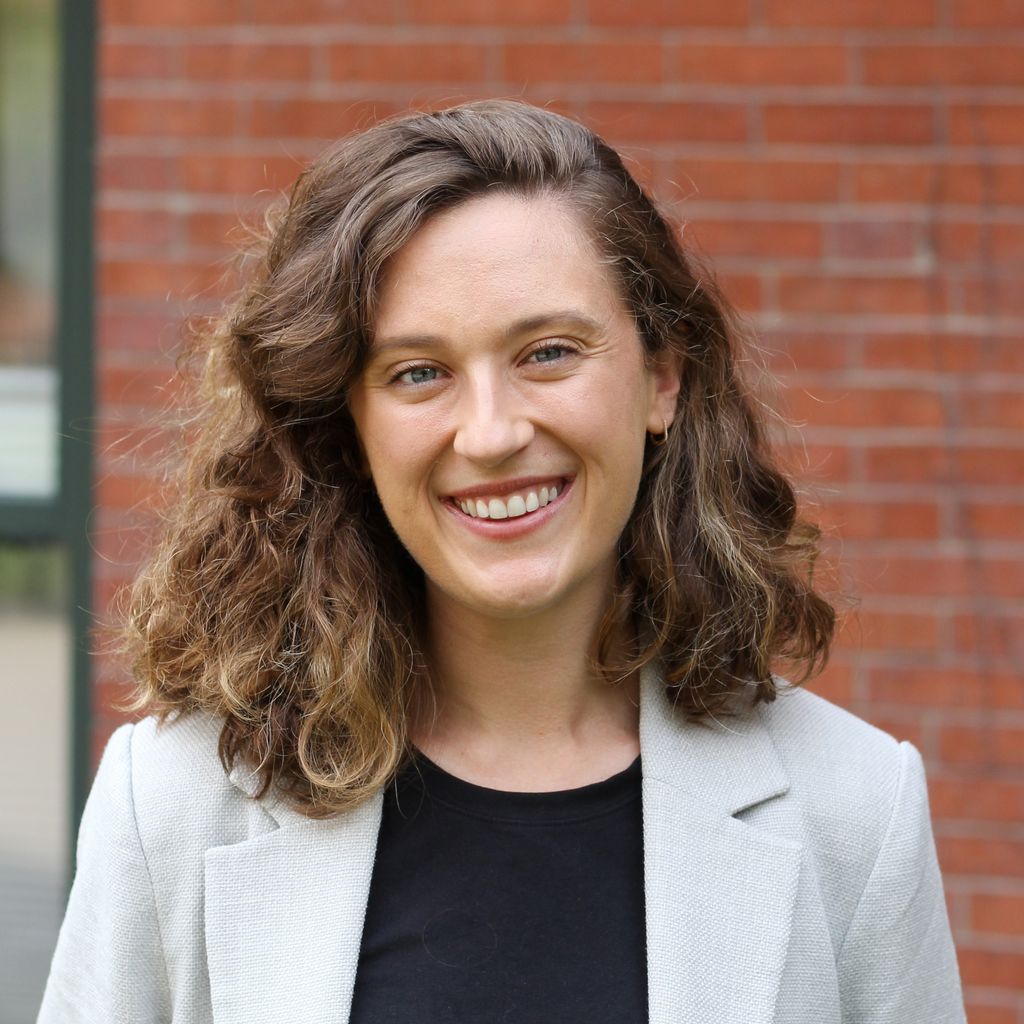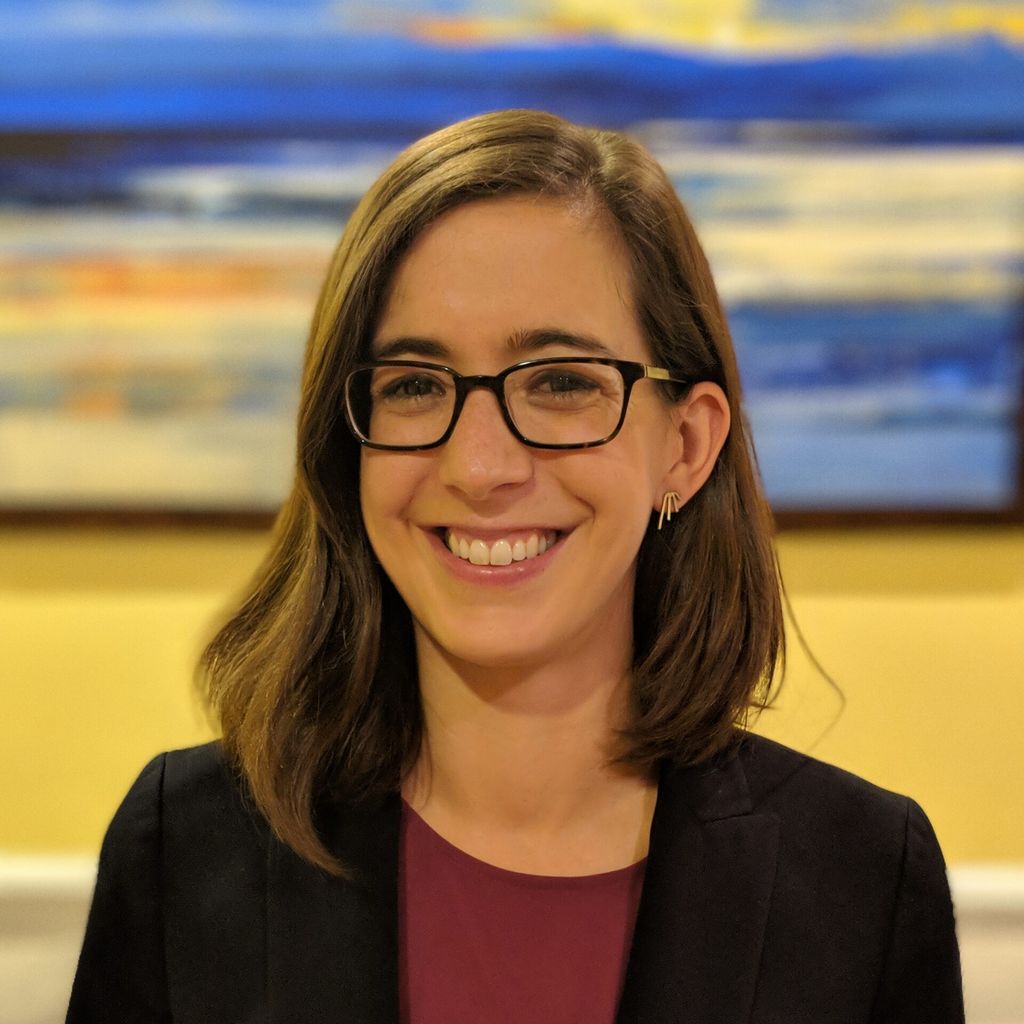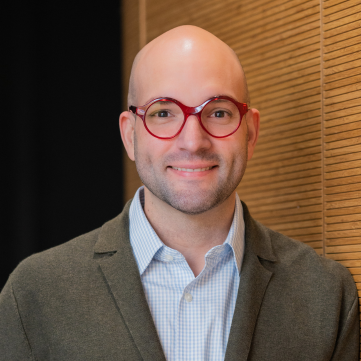Investing in the Future of SPH: Meet Our 24 New Faculty.

Investing in the Future of SPH: Meet Our 24 New Faculty
Over the last two years, the School of Public Health has embarked on the largest faculty recruitment effort in our history, resulting in 41 new faculty.
The School of Public Health is delighted to welcome 24 new faculty across all six academic departments this year. These new faculty bring a wealth of experience, diverse perspectives, and equity-oriented action to the SPH community. They embody our core purpose to “Think. Teach. Do. For the Health of All,” and will advance our teaching and mentoring; research and scholarship; and public health practice and advocacy.
Together with those brought on during the previous successful year of recruiting, these faculty represent the future of the School as we continue to advance our mission in accordance with our strategy map. They bring experience in the classroom, impressive scholarly track records, and will be wonderful additions to the School’s collaborative environment. These faculty join SPH after multiple department-focused faculty searches conducted over the last year.
We are so pleased to welcome the following new faculty members to SPH:

Salma Abdalla, DrPH, MBBS, MPH
Assistant Professor, Global Health
Professor Salma Abdalla, a Sudanese medical doctor, focuses her research on understanding how microsocial forces shape the health of the population. In particular, she studies how data on the social, economic, and commercial determinants can be used to inform decision-making on health and health equity in different contexts. She also studies the effects of trauma on global population mental health. Prior to joining the faculty, she was a postdoctoral researcher in the Department of Epidemiology at Boston University School of Public Health.

Maria Argos, PhD
Professor, Environmental Health
Professor Maria Argos’ research interests center on two broad scientific themes: the impact of metals on chronic disease across the life course and the association of metal exposures with molecular endpoints for the elucidation of underlying mechanisms of disease etiology. Her research has a strong emphasis on identifying molecular pathways altered by environmental exposures that influence disease risk by leveraging high-dimensional molecular data and biomarker data obtained from biological specimens collected in the epidemiological setting. Prior to BU, she was an associate professor in the Division of Epidemiology and Biostatistics and interim associate dean for global health at the University of Illinois Chicago School of Public Health.

Daniel (Dani) Asfaw, PhD
Assistant Professor, Health Law, Policy, and Management
Professor Daniel Abebe Asfaw’s research interests include understanding the determinants of access to care and how it varies across racial and ethnic groups. He uses modern causal inference methods to evaluate federal-, state-, and organizational-level interventions on healthcare access, cost, and health outcomes for the veteran population. He joins the faculty having served as a senior data analyst at the Partnered Evidence-based Policy Resource Center (PEPReC) at the VA Boston Healthcare System and a postdoctoral fellow in the Department of Health Law, Policy, and Management at the Boston University School of Public Health.

Samantha (Sam) Auty, PhD
Research Assistant Professor, Health Law, Policy, and Management
Professor Samantha (Sam) Auty’s research uses quasi-experimental methods to discern the effect of state and federal policies on access to care and health outcomes among vulnerable groups, particularly those with substance use disorders or associated chronic conditions (HIV/HCV). In particular, her research interests include isolating the impact of enrollment in Medicaid managed care on access to substance use treatment services and maternal health outcomes among pregnant women with opioid use disorder. Dr. Auty joins the faculty following completing her PhD in Health Services Research at Boston University School of Public Health.

Scarlett Bellamy, ScD
Professor and Chair, Biostatistics
Professor Scarlett Bellamy’s work centers on evaluating the efficacy of interventions in longitudinal behavioral modification trials, including cluster- and group-randomized trials. She is particularly interested in applying this methodology to address health disparities for a variety of clinical and behavioral outcomes, including HIV/AIDS, cardiovascular disease, and health-promoting behaviors. Prior to her arrival at BU, she was a professor in the Department of Epidemiology and Biostatistics and the associate dean for diversity and inclusion at Drexel University Dornsife School of Public Health.

Kimberly Brimhall, PhD
Clinical Associate Professor, Health Law, Policy, and Management
Professor Kimberly Brimhall’s research focuses on improving the quality of health care services through creating socially just, equitable, and inclusive health care work environments. She has experience working with hospitals, public child welfare, and mental health organizations to improve quality of care by examining how leadership and inclusion influence employee job satisfaction and ultimately the organization’s ability to innovate and improve client services. Prior to joining SPH, she was an pssistant Professor in the Department of Social Work at the College of Community and Public Affairs, assistant director of the Institute for Justice and Well-Being, and a faculty fellow of the Bernard M. and Ruth R. Bass Center for Leadership Studies in the School of Management and Center for Collective Dynamics of Complex Systems at the State University of New York at Binghamton.

Nina Brooks, PhD
Assistant Professor, Global Health
Professor Nina Brooks’ research interests lie at the intersection of environment, health, and development economics. Her current research examines the environmental and health consequences of brick manufacturing in Bangladesh, how extreme heat affects fertility in sub-Saharan Africa, and the impacts of abortion policies on women’s health and economic outcomes. Prior to joining SPH, Dr. Brooks was an assistant professor at the University of Connecticut School of Public Policy.

Huimin Cheng, PhD
Assistant Professor, Biostatistics
Professor Huimin Cheng’s research focuses on network data analysis, inspired by various scientific questions in different domains, such as single-molecule biophysics, public health, bioinformatics, political science, and smart grid. She has developed various methods, including network cross-validation, network sampling, network ANOVA and graph deep learning. She joins SPH after completing her PhD in the Department of Statistics at the University of Georgia.

Cristina Gago, PhD
Assistant Professor, Community Health Sciences
Professor Cristina Gago applies implementation science principles and behavior change theory to the evaluation of community health, food assistance, and social service interventions, such as those offered by the Special Supplemental Nutrition Program for Women, Infants, and Children (WIC) and Head Start. Through her partnership-grounded, translational research practice, Dr. Gago aims to identify actionable opportunities to increase health and social service accessibility and uptake, by improving the quality of intervention implementation. Before joining SPH, she was a postdoctoral fellow at NYU Langone’s Institute for Excellence in Health Equity.

Maria Glymour, SD
Professor and Chair, Epidemiology
Professor Maria Glymour’s research focuses on how social factors experienced across the life course, from infancy to adulthood, influence cognitive function, dementia, stroke, and other health outcomes in old age. She is especially interested in education and other exposures amenable to policy interventions. Prior to joining SPH, Dr. Glymour was a professor in the Department of Epidemiology and Biostatistics at the University of California San Francisco, vice chair of finance for the department, director of the department’s PhD program, and faculty lead for the lifecourse epidemiology division.

Phillip Hwang, PhD, MPH
Assistant Professor, Epidemiology
Professor Phillip Hwang is a neuroepidemiologist, focusing his research on modifiable lifestyle factors, such as physical activity, diet, and social engagement, across the life course on risk and resilience for Alzheimer’s disease and related dementias (ADRD). He also conducts research on traumatic brain injury and chronic traumatic encephalopathy, as well as use of digital technologies to assess cognition and facilitate more inclusive and representative research around ADRD. He joins SPH after a postdoctoral fellowship in the Department of Anatomy and Neuroscience at Boston University Chobanian & Avedisian School of Medicine.

Anoop Jain, DrPH
Assistant Professor, Environmental Health
Professor Anoop Jain’s research focuses on elucidating the possible social determinants of sanitation issues in India, in particular toilet ownership and use. In addition to his academic career, he is also the founding director of Sanitation and Health Rights in India (SHRI), a non-profit that improves access to toilets and safe drinking water throughout rural India. Prior to joining the faculty, Dr. Jain completed a postdoctoral fellowship in the Department of Global Health and Social Medicine at Harvard Medical School.

Patrece Joseph, PhD
Assistant Professor, Community Health Sciences
Professor Patrece Joseph is a community-engaged and mixed-methods researcher who integrates public health and developmental science research to explore minoritized adolescents’ lifestyle behaviors in a contextually grounded manner. Her specific research focuses on the development of theories and scales for minoritized adolescents and their application to intervention design. She also explores the risks and opportunities of social media for minoritized adolescents. She joins SPH following a Carolina Postdoctoral Fellowship for Faculty Diversity at the University of North Carolina at Chapel Hill.

Fatema Shafie Khorassani, PhD
Assistant Professor, Biostatistics
Professor Fatema Shafie Khorassani’s work focuses on data integration methods for time-to-event outcomes and on statistical methods for surrogate endpoints. Her collaborative projects focus on studying health disparities in cancer, substance abuse, and stroke. Prior to joining SPH, she completed her PhD in the Department of Biostatistics at the University of Michigan School of Public Health.

Kipruto Kirwa, PhD
Assistant Professor, Environmental Health
Professor Kipruto Kirwa is an environmental epidemiologist who applies techniques from environmental health, epidemiology, and statistical modeling to better understand how environmental factors affect human health, and how those effects can be mitigated. His research seeks to improve the quantification of air pollutant exposures, identify population groups most at risk for pollutant-induced harms, and examine the interplay between pollutants and emerging health threats. He joins SPH after serving as an assistant professor in the Department of Public Health and Community Medicine at Tufts University.

PhuongThao (PT) Le, PhD
Assistant Professor, Community Health Sciences
Professor PhuongThao (PT) Le’s research focuses on understanding sociocultural contexts affecting the health of marginalized populations to inform the design, implementation, and evaluation of mental health and psychosocial support programs and interventions globally. She uses community-based participatory approaches, both quantitative and qualitative research methods, and implementation science frameworks and methods to promote more comprehensive, pragmatic, and community-engaged public health responses. Dr. Le joins the faculty after serving as a research scientist in the Department of Social and Behavioral Sciences at the NYU School of Global Public Health.

Katherine (Kat) Moon, PhD
Assistant Professor, Environmental Health
Professor Katherine (Kat) Moon is an environmental epidemiologist with expertise in applying molecular and geospatial epidemiologic methods to characterize health disparities, identify environmental causes of disease, understand pathophysiologic mechanisms, and inform population-level policies. Her work has largely focused on chronic diseases of unhealthy aging in middle- and older-aged adults: cardiovascular disease, diabetes, cognitive impairment, and dementia. She joins the SPH faculty following a postdoctoral fellowship in the Department of Environmental Health and Engineering at the Johns Hopkins School of Public Health.

Allison Portnoy, ScD
Assistant Professor, Global Health
Professor Allison Portnoy’s research interests include economic modeling of public health interventions, vaccine costs and cost-effectiveness, and the impact of vaccination on population health and economic outcomes, particularly in examining the evidence base on the broader economic impact and value of vaccination. Dr. Portnoy’s current research includes estimating the impact of novel TB vaccines, developing methods to estimate the vaccine delivery costs of reaching zero-dose children, and the health and economic impact of RSV vaccines. Prior to joining SPH, Dr. Portnoy was a postdoctoral fellow at the Center for Health Decision Science at the Harvard T.H. Chan School of Public Health.

Lynsie Ranker, PhD
Assistant Professor, Community Health Sciences
Professor Lynsie Ranker is a social epidemiologist whose research focuses on contextual factors in lived and online environments and their relationships with substance use among adolescents and young adults. Her recent work uses a combination of epidemiologic methods and social media analytics to examine the influences of social media content on tobacco use and purchasing patterns. Dr. Ranker joins the faculty after serving as a postdoctoral associate in the Department of Community Health Sciences at the Boston University School of Public Health.

Carlos Rodriguez-Diaz, PhD
Professor and Chair, Community Health Sciences
Professor Carlos Rodriguez-Diaz conducts community-based research in Puerto Rico, the United States of America, and the Caribbean region. His work focuses on health equity through actions on the social determinants of health and has included several programs addressing health inequities among populations made socially vulnerable, including people with HIV, Hispanics/Latinxs, incarcerated populations, and sexual and gender minority groups. Prior to joining SPH, Dr. Rodriguez-Diaz was a professor and vice chair of Prevention and Community Health at George Washington University.

Kayoko Shioda, PhD, DVM, MPH
Assistant Professor, Global Health
Professor Kayoko Shioda is an infectious disease epidemiologist and veterinarian working at the intersection of global health, One Health, vaccine epidemiology, and Bayesian statistics. Her research integrates veterinary medicine, epidemiological methods, mathematical modeling, and Bayesian statistics to tackle issues in infectious disease epidemiology. She joins SPH following a postdoctoral fellowship in the Gangarosa Department of Environmental Health and Department of Epidemiology at Emory University Rollins School of Public Health.

Kathryn Thompson, PhD, MHA
Assistant Professor, Community Health Sciences
Professor Kathryn Thompson’s research leverages economic frameworks to quantitatively study how social, demographic, and policy contexts shape health and disparities for women, people of color, and Medicaid populations. Her research provides evidence that social identities—like race/ethnicity—and social positions—like socioeconomic status—combine in unique ways to structure health care access, health service utilization, and health outcomes among vulnerable populations. Prior to joining SPH, she completed her PhD in Health Services Research at the Brown University School of Public Health.

Lukas Weber, PhD
Assistant Professor, Biostatistics
Professor Lukas Weber’s research is on the development of unsupervised statistical methodology and software to extract biological insights from high-throughput genomic data, motivated by collaborations in fields such as neuroscience and cancer. Dr. Weber has implemented a number of freely accessible software packages through the R/Bioconductor project. Prior to joining SPH, he was a postdoctoral fellow in the Department of Biostatistics at Johns Hopkins Bloomberg School of Public Health.

Justin White, PhD
Associate Professor, Health Law, Policy, and Management
Professor Justin White is a health economist who conducts research to evaluate the effects of interventions and policies on behavioral risk factors for chronic disease and related health outcomes in underserved populations. He applies quasi-experimental econometric techniques to evaluate the effects of social and economic policies on mitigating chronic disease risk, and he designs and implements incentive-based interventions to change health behavior among low-income groups. Prior to joining SPH, Dr. White was an associate professor at the UCSF School of Medicine in the Philip R. Lee Institute for Health Policy Studies and the Department of Epidemiology and Biostatistics.